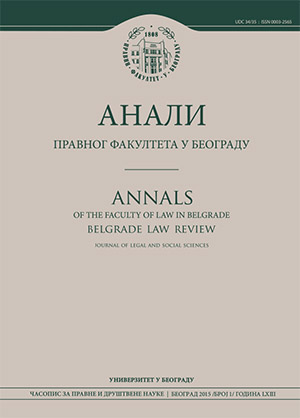О ДОБРОВОЉНОСТИ ОДУСТАНКА ОД ИЗВРШЕЊА КРИВИЧНОГ ДЕЛА
ON VOLUNTARINESS OF THE WITHDRAWAL FROM THE COMMITMENT OF THE CRIMINAL OFFENCE
Author(s): Ivan ĐokićSubject(s): Psychology, Criminal Law, Criminology
Published by: Правни факултет Универзитета у Београду
Keywords: Withdrawal; Voluntariness; Psychological theories; Normative theories; Absolute and relative obstacles;
Summary/Abstract: Serbian Criminal Code (CC) provides in art. 32 that offender who voluntary withdraws from an attempted offence can be released from punishment. CC distinguishes between two different types of attempt, unfinished and finished attempt. For both types CC prescribes that withdrawal must be voluntary. In earlier theory the distinction between voluntariness and involuntariness was made on the basis of the so-called Frank’s Formula (the withdrawal is voluntary if the perpetrator says: I don’t wish to complete the offence if I could, whereas it will be involuntary if he thinks: I cannot complete the offence if I wanted to). This theory has been abandoned in the modern criminal law doctrine. The requirement of voluntariness is usually interpreted according to psychological and normative approach. According to art. 32 (2) CC there is no voluntariness if it is impossible for the offender to commit the offence or if there are some obstacles which make significantly difficult the commitment of the criminal offence. Serbian jurisprudence holds a restrictive approach to the requirement of voluntariness despite the fact that CC unlike the law of some other countries doesn’t prescribe that withdrawal leads to a full acquittal from the charge based on the attempted offence.
Journal: Анали Правног факултета у Београду
- Issue Year: 63/2015
- Issue No: 1
- Page Range: 186-201
- Page Count: 16
- Language: Serbian

